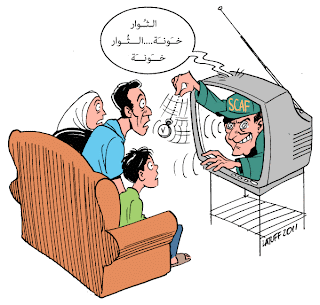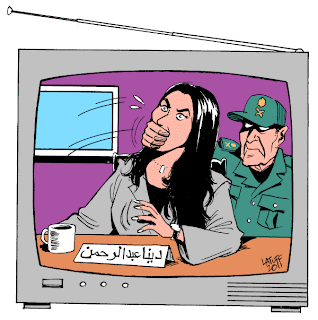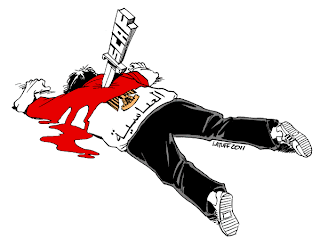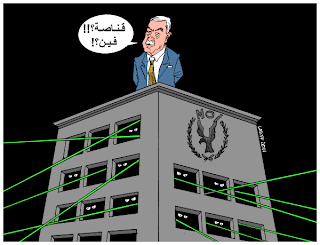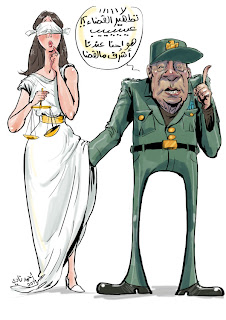Yesterday 74 Egyptians died in a football stadium in the city of Port Said. International media presents this as a case of football hooliganism gone out of control, as David Kirkpatrick of the New York Times
puts it:
The deadliest soccer riot anywhere in more than 15 years, it also illuminated the potential for savagery among the organized groups of die-hard fans known here as ultras who have added a volatile element to the street protests since Mr. Mubarak’s exit.
The fact that they played a role during the revolution (and still do) is mentioned as a footnote:
The ultras joined the revolt against Mr. Mubarak on the first day of protests, taunting and harassing the police as they tried to crack down on thousands of other marchers heading for Cairo’s Tahrir Square. Protest organizers said that they had played a more central role in the “battle of the camels,” helping to beat back mobs of Mubarak supporters in a daylong battle of rocks and gasoline bombs.
The ultras maybe not be saints, but something does not sit quite well with me with that sort of reporting. I probably owe life and limb to the ultras who defended me and other protesters during the toughest days of the revolution. The ultras were always the calvary during protests. When goings got tough, the ultras were there and they were steadfast and unflinching in the face of brutality. They never tried to milk their heroism and bravery for political gain, or attribute any small victory to their efforts alone, as the Islamists often do. The ultras may not be philosophical or articulate, and they do not have political agenda, but they fully believed in the just cause of the revolution. They are youth who fight their sense of disenfranchisement by strong camaraderie and love of their football team. During the revolution their sense of camaraderie expanded to the rest of the protesters. It was not uncommon for ultras from competing football teams to fight side by side against those who were attacking the protesters. Since Mubarak’s exit they have took part in battles that were many time more fearsome than the “battle of the camels”. Though their behavior may appear rowdy to some, I can not but feel love and respect for them.
The tragedy in Port Said stadium must be the worst in the history of Egyptian football. What happened there can not properly be interpreted without putting it in the larger context of what has been going on in Egypt. The Al-Ahly club utras have been very supportive of the recent calls for the military junta to step and hand over control to civilian leadership. As recent as Saturday in match they rocked the stadium with their chants that are roughly translated to:
Oh you MPs
You turned out to be more rotten than the Police
Raise the prison walls higher and higher
Tomorrow the revolution with lay them to waste
Oh brother, write on the cell wall
Junta rule is shameful and treasonous
Down Down with Junta rule!
….
Police are thugs…Police are thugs
I hear a mother of martyr crying “Junta dogs killed my son”
Down Down with Junta rule!
Down Down with Junta rule!
The circumstances of what happened in that stadium yesterday are incredibly conspicuous. The “fans” of opposing team, after a 3-1 victory on Al-Ahly club, attack the losing side with viciousness, this has never happened before! The ultras of Al-Ahly had no escape as the all exists were blocked my the military police. The lights of the stadium were turned off, thereby increasing the panic in the ranks of the ultras. Those who were beaten senseless were stripped off their shirts and their belongings stolen. All this while hundreds of riot police stood by and watched!
Later on, Field Marshal Tantawi sent a military plane to pick up Al-Ahly players and after greeting them he remarked ,“How come the people of Egypt are complacent about those who foment violence? ” Many saw this statement as a tacit admission that the state has no role in insuring safety of its citizens, others saw this as an invitation for civil war or a “battle of the camels, part II” !
Many Egyptians now believe that somewhere in the echelons of power, an order must have been given to …
Terminate the Ultras with extreme prejudice!




